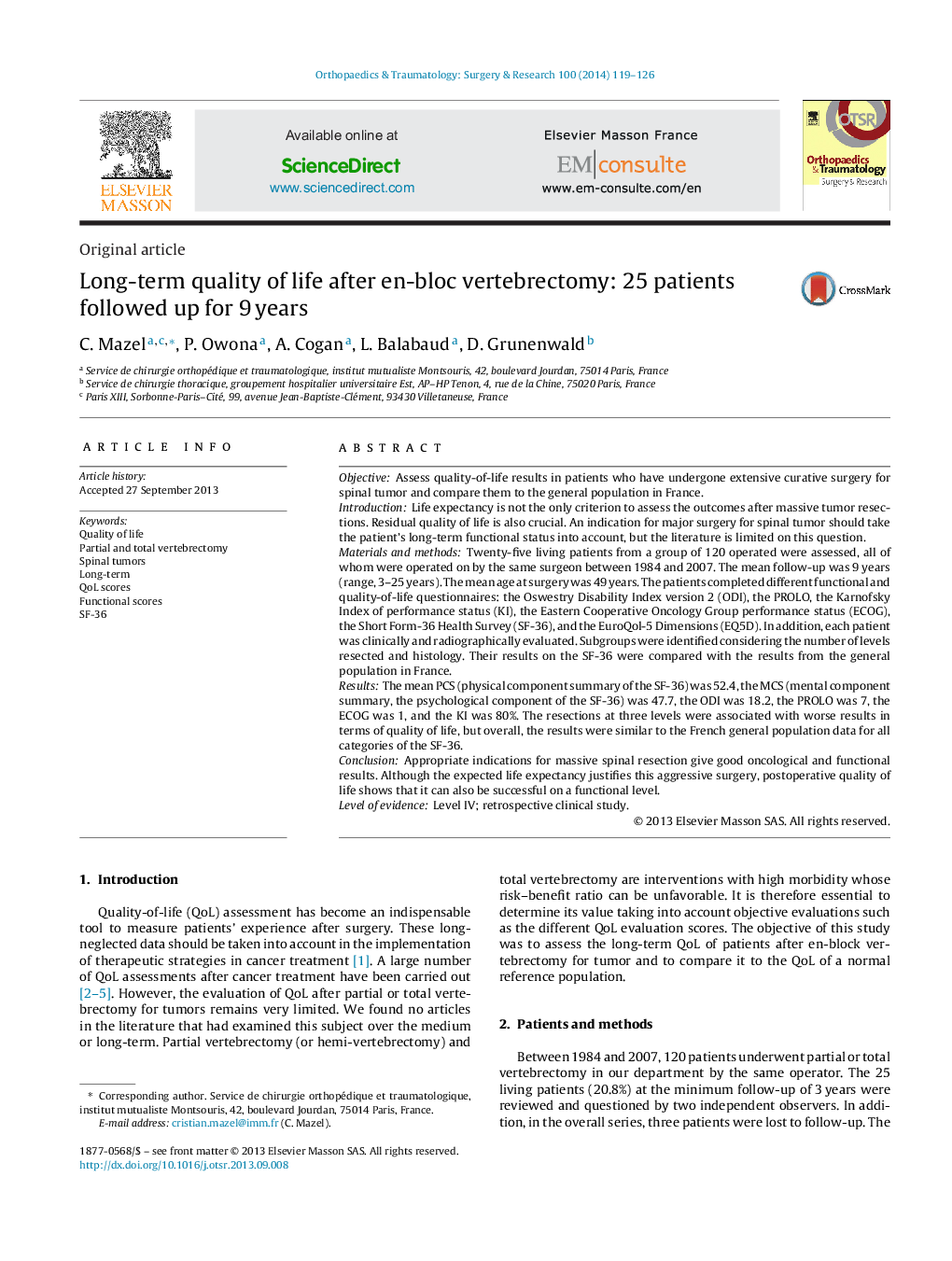| Article ID | Journal | Published Year | Pages | File Type |
|---|---|---|---|---|
| 4081355 | Orthopaedics & Traumatology: Surgery & Research | 2014 | 8 Pages |
ObjectiveAssess quality-of-life results in patients who have undergone extensive curative surgery for spinal tumor and compare them to the general population in France.IntroductionLife expectancy is not the only criterion to assess the outcomes after massive tumor resections. Residual quality of life is also crucial. An indication for major surgery for spinal tumor should take the patient's long-term functional status into account, but the literature is limited on this question.Materials and methodsTwenty-five living patients from a group of 120 operated were assessed, all of whom were operated on by the same surgeon between 1984 and 2007. The mean follow-up was 9 years (range, 3–25 years). The mean age at surgery was 49 years. The patients completed different functional and quality-of-life questionnaires: the Oswestry Disability Index version 2 (ODI), the PROLO, the Karnofsky Index of performance status (KI), the Eastern Cooperative Oncology Group performance status (ECOG), the Short Form-36 Health Survey (SF-36), and the EuroQol-5 Dimensions (EQ5D). In addition, each patient was clinically and radiographically evaluated. Subgroups were identified considering the number of levels resected and histology. Their results on the SF-36 were compared with the results from the general population in France.ResultsThe mean PCS (physical component summary of the SF-36) was 52.4, the MCS (mental component summary, the psychological component of the SF-36) was 47.7, the ODI was 18.2, the PROLO was 7, the ECOG was 1, and the KI was 80%. The resections at three levels were associated with worse results in terms of quality of life, but overall, the results were similar to the French general population data for all categories of the SF-36.ConclusionAppropriate indications for massive spinal resection give good oncological and functional results. Although the expected life expectancy justifies this aggressive surgery, postoperative quality of life shows that it can also be successful on a functional level.Level of evidenceLevel IV; retrospective clinical study.
